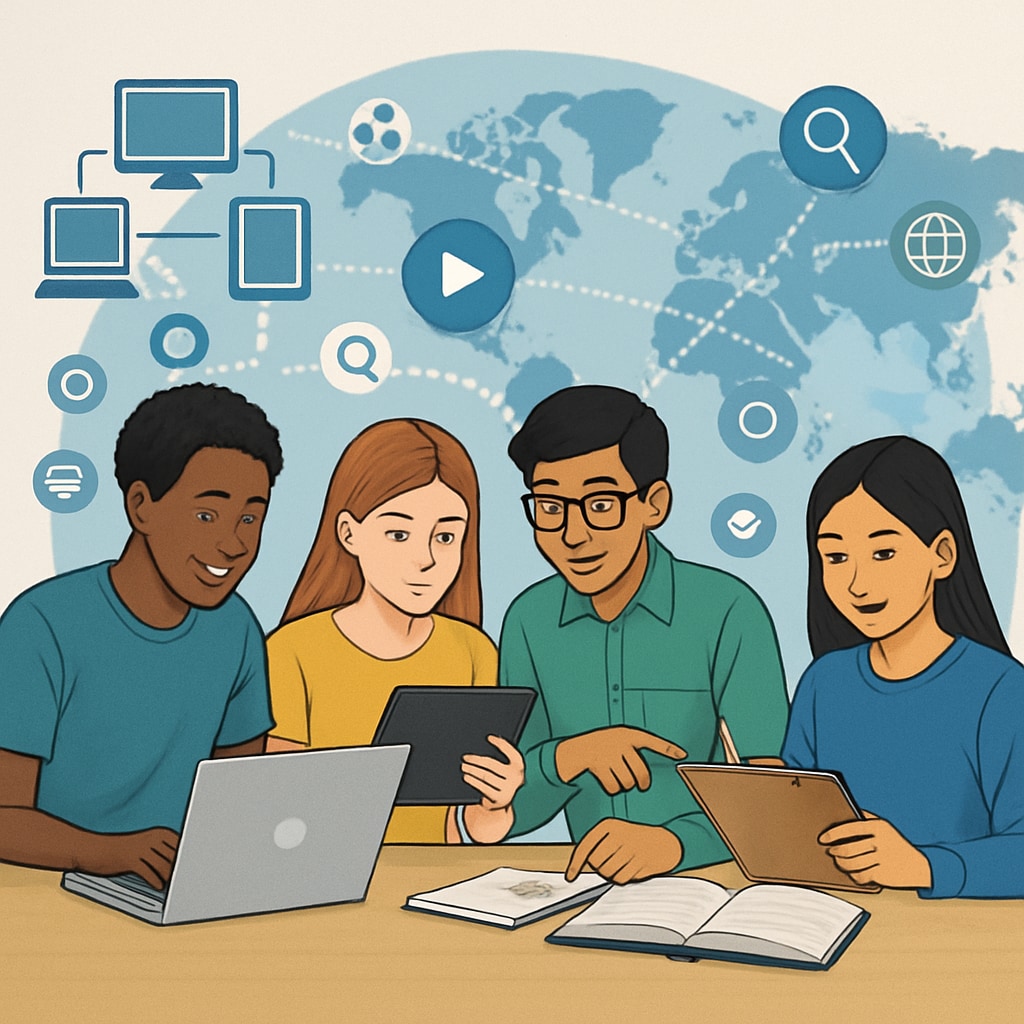In the digital age, the way K12 students approach media research, surveys, and academic support is evolving rapidly. Online communities have become essential tools for students seeking assistance with tasks such as completing media research surveys. This article examines the rising trend of leveraging online platforms for academic purposes, the benefits of fostering digital citizenship and research skills, and the importance of maintaining academic integrity in this collaborative process.
How Online Communities Support Media Research and Surveys
Online communities provide a space where students can seek assistance for academic projects, such as completing media research surveys. These platforms allow students to connect with diverse individuals who can offer feedback, share experiences, and contribute valuable insights. For example, forums on Reddit, educational groups on Facebook, and even niche platforms like research-focused Discord servers enable students to gather broader perspectives.
In addition, these communities often provide a structured environment where students can practice designing survey questions, analyzing responses, and interpreting data—key skills in the field of media research. Engaging with these platforms not only accelerates survey completion but also exposes students to real-world collaboration and problem-solving scenarios.

Benefits of Digital Collaboration for K12 Students
Collaborating in online communities equips K12 students with essential digital literacy skills. As students interact with peers and experts globally, they refine their ability to communicate effectively in virtual settings. This process also fosters digital citizenship, a critical skill for navigating today’s interconnected world responsibly and ethically.
Moreover, by engaging in collaborative media research, students enhance their critical thinking and problem-solving abilities. They learn to synthesize diverse viewpoints, process extensive data, and derive meaningful conclusions. These competencies are invaluable not only in academia but also in preparing students for future careers in an increasingly digital and data-driven world.

Balancing Community Support with Academic Integrity
While the benefits of digital collaboration are undeniable, educators and students must remain vigilant about academic integrity. Seeking help from online communities can sometimes blur the line between collaboration and plagiarism. To address this, schools should provide clear guidelines on what constitutes acceptable collaboration.
Here are some strategies to maintain ethical standards:
- Encourage students to document sources and citations for all external contributions.
- Teach students to differentiate between guidance and direct answers to ensure independent learning.
- Incorporate lessons on ethical digital practices and the importance of originality.
By promoting these principles, educators can help students use online platforms responsibly while upholding the integrity of academic work.
As a result, students can benefit from community-driven insights without compromising their personal development or the authenticity of their research.
Conclusion: The Future of Academic Collaboration
The integration of online communities into K12 education has the potential to revolutionize how students approach media research and surveys. By fostering digital citizenship, enhancing critical thinking, and emphasizing academic integrity, these platforms empower students to navigate the academic challenges of the digital era successfully.
Ultimately, the collaboration between students and online communities is a testament to the power of technology to bridge gaps, create opportunities, and inspire innovation. As educators and students continue to explore this dynamic interplay, the future of academic collaboration looks brighter and more inclusive than ever.
Readability guidance: This article balances short paragraphs, clear transitions, and concise language to ensure accessibility for readers at all levels. It includes actionable insights and emphasizes ethical practices in digital collaboration.


